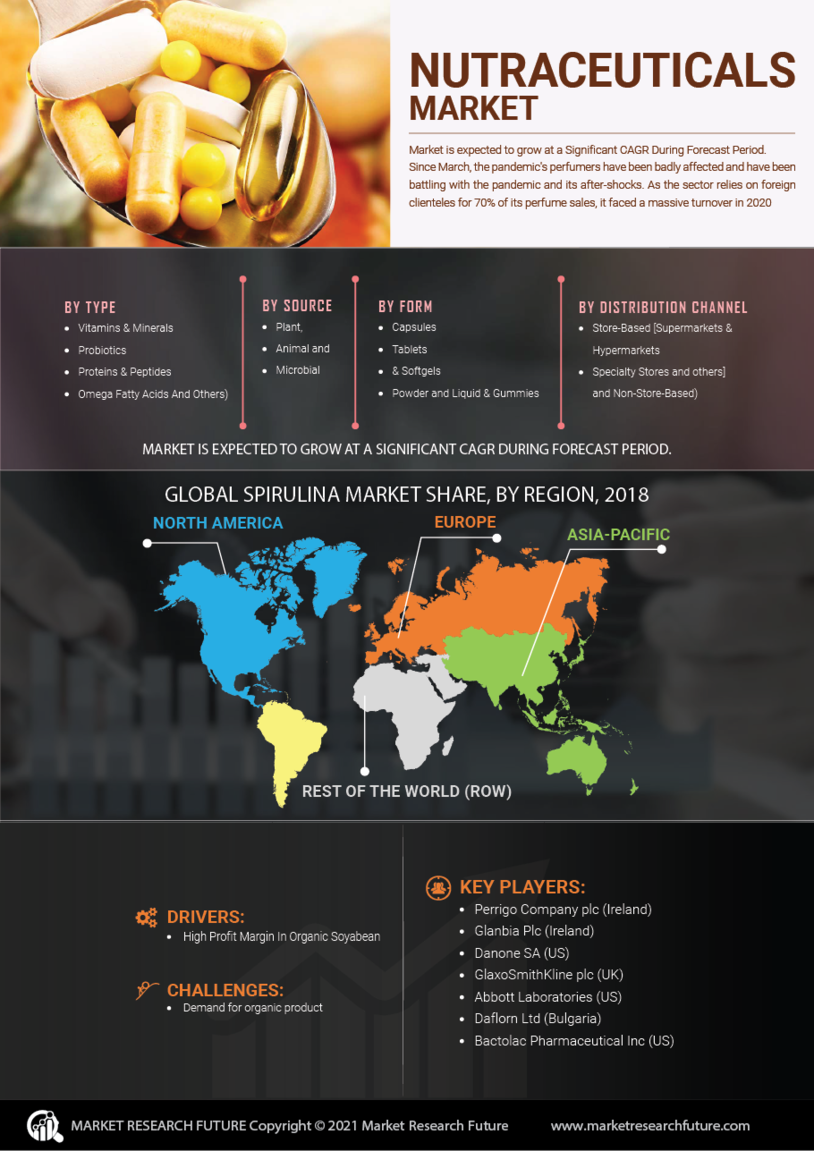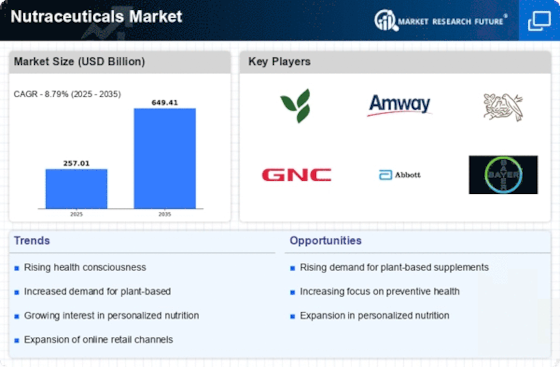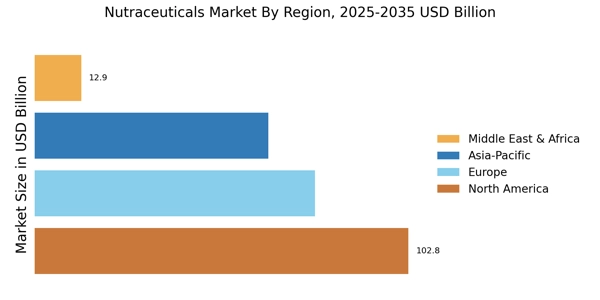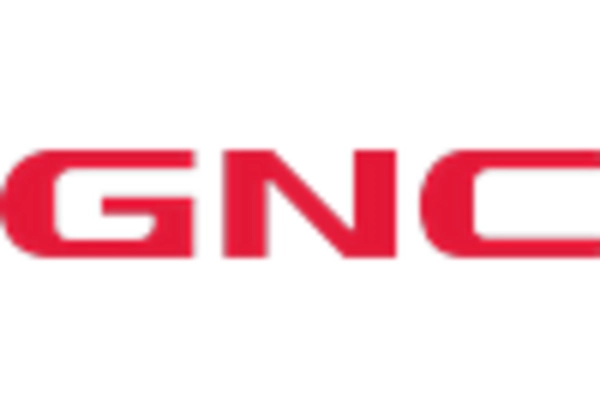Aging Population
The demographic shift towards an aging population is likely to have a profound impact on the nutraceuticals Market. As individuals age, they tend to experience a decline in health and an increased susceptibility to chronic diseases. This demographic is increasingly turning to nutraceuticals as a means of managing health issues and enhancing quality of life. Data suggests that by 2030, the number of people aged 60 and above will surpass 1.4 billion, creating a substantial market for age-specific nutraceutical products. Companies are responding by formulating products that address age-related health concerns, such as joint health, cognitive function, and cardiovascular health, thus driving growth in the Nutraceuticals Market.
Increasing Health Consciousness
The rising awareness regarding health and wellness among consumers appears to be a primary driver for the Nutraceuticals Market. Individuals are increasingly seeking preventive healthcare solutions, which has led to a surge in demand for dietary supplements and functional foods. According to recent data, the market for nutraceuticals is projected to reach approximately USD 500 billion by 2027, reflecting a compound annual growth rate of around 7.5%. This trend indicates that consumers are prioritizing their health, opting for products that offer nutritional benefits. As a result, manufacturers are focusing on developing innovative products that cater to this growing health-conscious demographic, thereby propelling the Nutraceuticals Market forward.
Rising Demand for Natural Ingredients
The growing preference for natural and organic ingredients is shaping the Nutraceuticals Market significantly. Consumers are becoming more discerning about the products they consume, favoring those that are free from synthetic additives and chemicals. This trend is reflected in the increasing sales of plant-based nutraceuticals, which are perceived as safer and more effective. Market data indicates that the plant-based nutraceuticals segment is expected to grow at a rate of 8% annually, highlighting the shift towards natural solutions. As a result, manufacturers are investing in sourcing high-quality natural ingredients to meet consumer expectations, thereby enhancing their product offerings within the Nutraceuticals Market.
Regulatory Support and Standardization
The increasing regulatory support and standardization within the Nutraceuticals Market are likely to foster growth and consumer trust. Governments and regulatory bodies are establishing guidelines to ensure product safety, efficacy, and labeling accuracy. This regulatory framework is essential for building consumer confidence, as it assures them of the quality of nutraceutical products. Moreover, standardization can facilitate market entry for new players, as they can adhere to established guidelines. As the industry matures, the emphasis on compliance and quality assurance is expected to enhance the overall credibility of the Nutraceuticals Market, potentially leading to increased sales and market expansion.
Technological Advancements in Product Development
Technological innovations are playing a crucial role in the evolution of the Nutraceuticals Market. Advances in biotechnology, extraction methods, and formulation techniques are enabling the development of more effective and targeted nutraceutical products. For instance, the use of nanotechnology in nutraceuticals is enhancing bioavailability, allowing for better absorption of nutrients. Furthermore, the integration of digital platforms for personalized nutrition is gaining traction, as consumers seek tailored solutions to meet their specific health needs. This technological shift is expected to drive market growth, with projections indicating that the nutraceuticals sector could see a valuation of USD 600 billion by 2028, underscoring the importance of innovation in the Nutraceuticals Market.

















